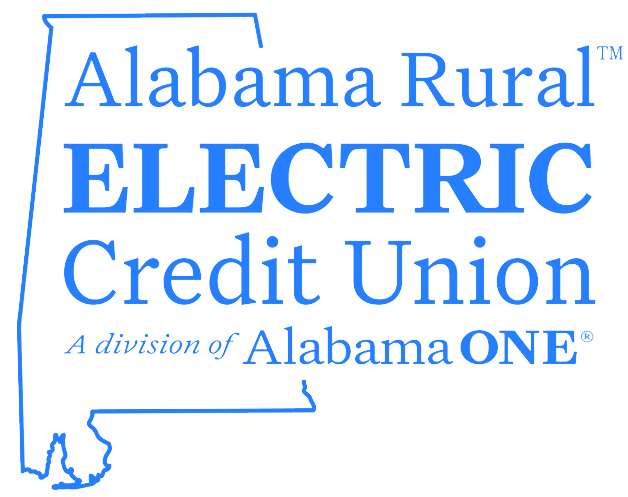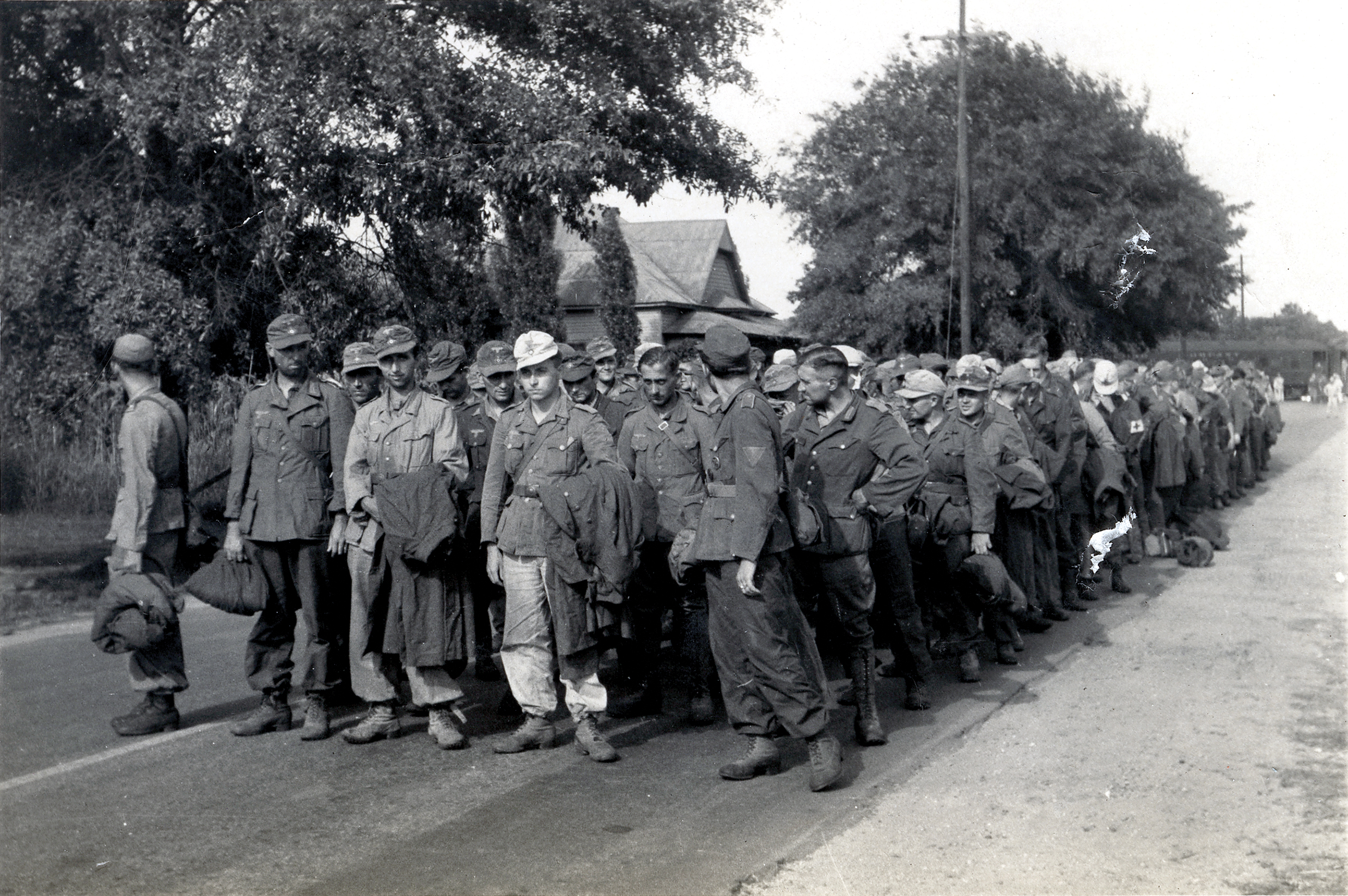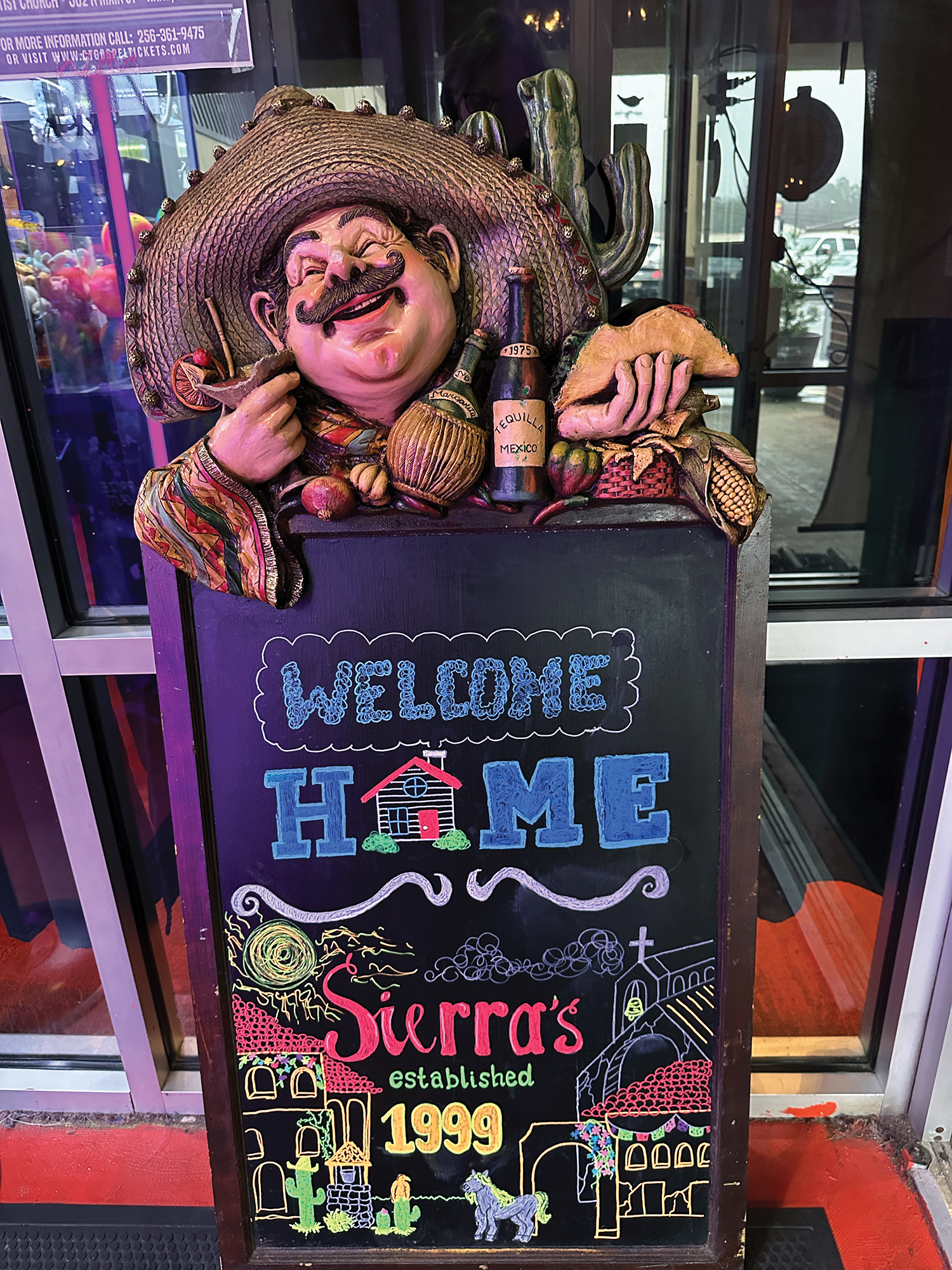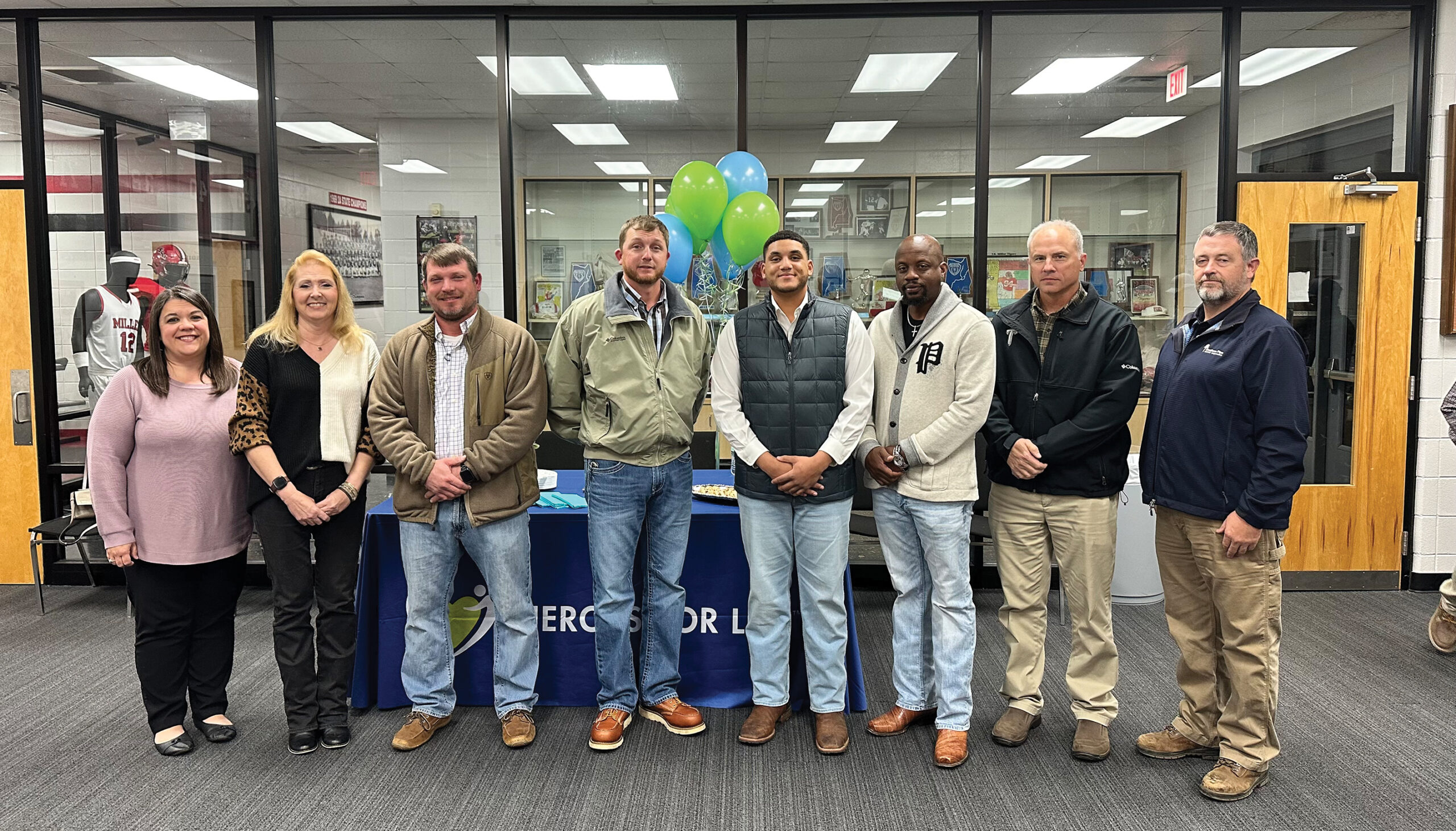East Alabama ministry extends the love of Christ in rural areas.
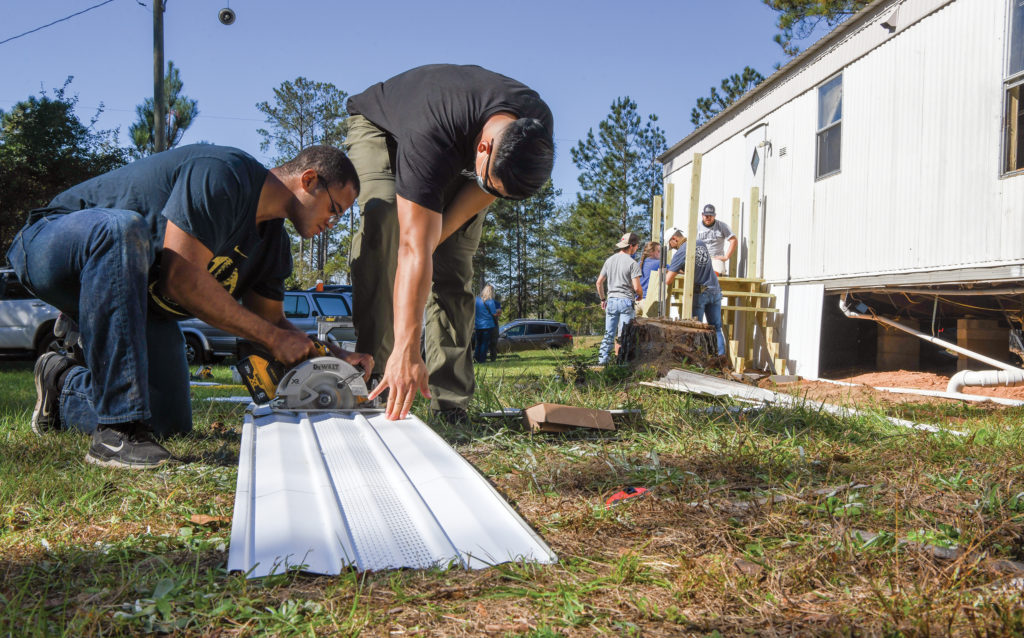
By Allison Law
From helping those whose homes were damaged or destroyed by tornadoes, to combating chronic, situational or generational poverty, the need for Alabama Rural Ministry’s services seems to have no end.
But this east Alabama faith-based group is up to the task.
“We can get so overwhelmed by the volume, if we look at it in sheer numbers, but we can make a difference, one family at a time, and (we’re) faithful to that,” says Lisa Pierce, director and founder of the Alabama Rural Ministry (ARM).
ARM is a hands-on, volunteer-oriented organization, with a mission of helping those in rural and under-resourced communities. The group’s primary focus is showing the love of Christ through home repair for those who can’t afford it or who are elderly or disabled; the non-profit also operates a children’s ministry for little ones who have few opportunities for summer enrichment and growth.
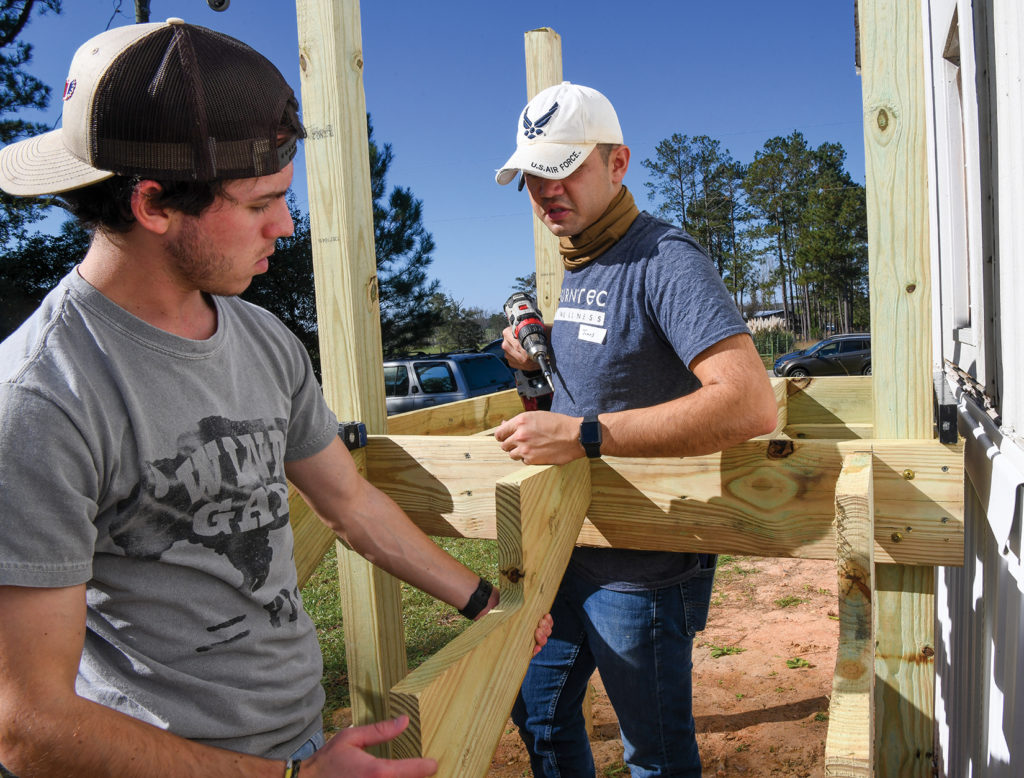
According to data from the non-profit Housing Assistance Council, 18.4 percent of Alabamians live in poverty, and 26.1 percent live in sub-standard housing. And while poverty is all over the state – both in urban and rural areas – poverty in rural areas looks different, Pierce says.
Rural areas and small towns don’t have the same kinds of resources, Pierce says, nor the infrastructure to support services like broadband internet. Also, gasoline often costs more in rural areas, making it more difficult for people who want to work to commute to more populous cities with better job opportunities. And the number of food deserts – areas that lack convenient access to fresh, healthy food – is higher in rural areas.
“What’s been lost over time, it used to be that the rural community had this stereotype of being more resourceful,” Pierce says, and some of that sense of community has been lost.
Fortunately, the resilience of rural folk is still strong.
March 3, 2019
Six tornadoes carved swaths across southern and central Alabama the afternoon of March 3, 2019, but the most devastating was in the community of Beauregard, where an EF-4 tornado caused 23 fatalities and 90 injuries.
The area is right in ARM’s backyard. Just south of Lee County roads 38 and 39 – among the hardest hit areas – are several families helped by ARM, including Johnny Washington, who lost his family’s mobile home.
On a workday this past November, a team from Auburn Community Church worked to get a donated mobile home ready for Washington’s family. (Though ARM grew out of the United Methodist Church and maintains that formal affiliation, it considers its work to be interdenominational and welcomes volunteers of all faiths.)
This work team – mostly young people, mostly Auburn students – were putting in insulation, installing skirting around the mobile home, cleaning the interior and building a porch and steps.
Joseph Farris, the site leader for this project, works with ARM through the United Methodist Committee on Relief (UMCOR). He did internships with ARM when he was a student at Auburn, and relates well to the young people working on this project.
“For me, it’s a time of worship for God, and this is a skill He’s given me, to teach people construction skills,” Farris says. “I really enjoy showing people that you don’t have to go overseas to be involved with missions – there’s need in their own backyard.”
‘No More Shacks’
The ARM staff recruits volunteer teams – college students, retirees, corporate teams, and out-of-state church groups – to do home repair projects, and connects the teams with families that need help. The families sometimes reach out to ARM directly or are referred by social service agencies or home health personnel.
Much of the work is repairing or replacing roofs, ceilings, floors and walls, or building steps and wheelchair ramps. The staff matches the project to the skill level of the volunteers. Some groups can handle electrical or plumbing work, but that’s often referred to sub-contractors. To help pay for that part of the work, ARM relies on its fundraising.

Its biggest fundraiser is the “No More Shacks” event each fall (2020 was the 13th year for the event), usually on an Auburn University home football game weekend. The ARM staff places its “shack” on a busy Auburn thoroughfare, where Pierce stays for the better part of a week, night and day. Game-day fans make donations and learn about the ministry from Pierce, but it’s also a highly visible PR campaign.
“This is (a way to show) what sub-standard housing can look and feel like,” Pierce says. The shack is really just that – four plywood walls, a roof covered with a tarp, no heating or air conditioning, and no running water. Pierce has access to a nearby building, but for the most part stays right at the shack, talking to passers-by about the chronic poverty in rural areas, and how they can play a part in alleviating the effects of that poverty.
The effects of COVID
For this year’s “No More Shacks” event, ARM adopted the theme, “safer at home starts with a safe home,” a play on words from the governor’s “safer at home” order of 2020. COVID added another layer of complexity for the families who need ARM’s help; often such homeowners have chronic health conditions or are in a vulnerable age population, so they’re not supposed to leave their homes. But when their homes are in desperate need of repair, what are they to do?
“That’s the kind of thing we’re trying to raise awareness about,” Pierce says.

COVID has impacted every organization, and ARM is no exception. The group lost a bulk of its volunteer teams and donations are down about 20 percent. The loss of revenue has meant a decrease in staffing. ARM also had to cancel its children’s day camps last summer.
Despite COVID setbacks, the ministry continues to look forward. Currently, ARM serves a loose 45-mile radius from the Auburn/Opelika area, primarily in Lee and Macon counties. But the staff is evaluating about five other communities to expand into, with help from a USDA grant.
Pierce and her staff would train organizers in those communities in the ARM model: Train managers to help families put together application documents, organize volunteers and supervise construction. ARM would help them apply for grants; with enough funding to repair even one or two houses, they would be off to the races, working in their own communities.
In the meantime, ARM is planning a workday project for Martin Luther King Jr. Day, traditionally a day of service for many church and school groups. If you’d like to learn more about that or any of ARM’s projects, including the youth mission teams for 2021, visit arm-al.org or call 334-501-4276.ν
